5 interesting questions dental hygienists have asked Kara RDH in March
As a well-known and accomplished dental hygienist, Kara Vavrosky often gets asked for advice. Here, she shares five more interesting questions she's been asked recently, along with her answers.
As a well-known and accomplished dental hygienist, Kara Vavrosky often gets asked for advice.
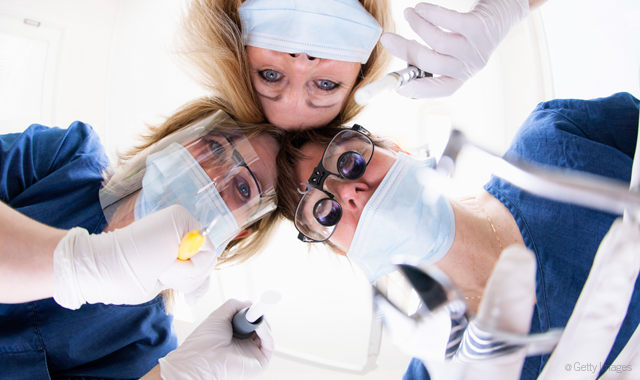
She runs the popular Facebook page Dental Hygiene with Kara RDH and is also the founder of dentalhygieneanswers.com, a question-and-answer platform for dental hygienists.
Here, Vavrosky shares five more interesting questions she's been asked recently, along with her answers.
Continue to the next page to view our slideshow of these questions and answers.

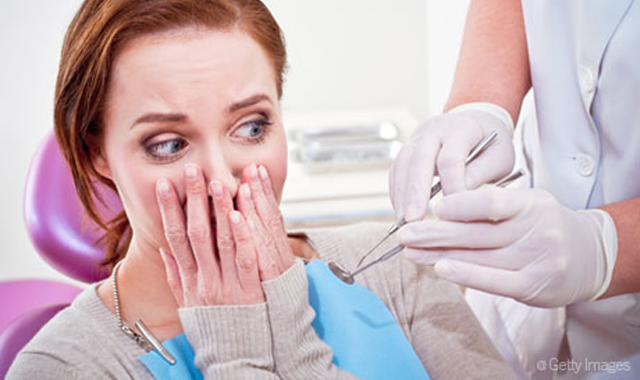


IA injection and electric shock
It seems with almost every patient I give the IA to, they feel an electric shock. Clearly I am hitting the IA nerve on a regular basis. Is this normal?
If a patient feels an electric shock sensation during an injection, the needle should be moved slightly (pull out a few millimeters) before continuing the deposition of anesthetic. About one to eight percent of patients will feel an unpleasant electric shock on insertion of the needle for an inferior alveolar nerve block because the needle has come into contact with the nerve sheath. Studies have shown that the vast majority of these contacts do not result in nerve damage as the tendency is for the needle to pass between the individual nerve fascicles. It can be difficult to avoid because every patient’s anatomical landmarks are different and reference points for an injection vary from patient to patient. If your patients are experiencing an electric shock more than eight percent of the time, you may want to move your insertion point a few millimeters.
While the injection needs to go close to the nerve, and you can’t see where the nerve is, it’s hard to give an exact answer to this question! For your piece of mind, numerous studies have demonstrated that an electrical shock sensation is not indicative of permanent nerve injury, even though damage to the nerve may occur because of needle contact. This form of direct trauma heals within two weeks in 81 percent of patients, with no residual damage to the nerve.
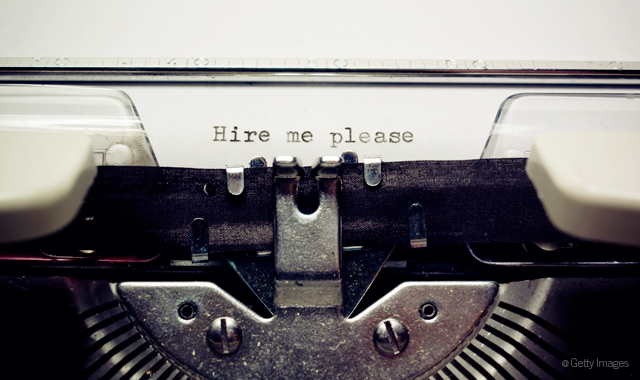


How can I compete with other hygienists with many more years of experience when looking for a job?
I am a new hygienist and wanted to know if others had advise on how to compete with hygienist that have many years of experience during interviews. I find myself discouraged when there’s a job posting and many hygienists with 10 years plus of experience are applying to same job I am. Any thoughts on why a dentist would choose me versus a seasoned RDH and what could I say to make myself more appealing candidate? Also should I be asking for a lot less pay to help my chances?
This is a great question because it can seem nearly impossible to find a job when you are competing against people who have much more experience than you. While you don’t have the same experience as other applicants, you can use your energy of being new in your career to your advantage. Let the doctor know you are a team player and are willing to help around the office and go above and beyond what they may think the hygienist’s primary role is. If you get a working interview, show them by doing this.
For instance, instead of asking the dental assistant to get something for you, ask where it’s located in the office, then get it yourself. This shows initiative to learn. During a working interview and if time permits, help with sterilizing instruments, stock your operatory, things that show you are a team player and that you don’t have the “someone else will do it” attitude. Ultimately, the doctor and other employees are going to want to be in an office with somebody they enjoy being around and you don’t need 10 years of experience to be a team player and personable.
To get experience, I would suggest temping. Temping teaches you how to walk into an office and know exactly what to ask about regarding the office’s protocols to get the job done. This gives you a great advantage for when working interviews for a permanent position begin. It also gives you an idea of what you like and don’t like in an office and systems that work (organization, protocols) to then implement in a permanent position. The same can be said for volunteering. Some doctors who volunteer like to hire those who volunteer as well. Both of these things are networking opportunities as well.
On the pay issue, I would check out your state’s employment website and see what the pay range is for dental hygienists. For example, you can find my state’s (Oregon) occupational wage breakdown here. Wages can vary not only state to state, but county to county, which is why the employment department is a good resource; many breakdown wages county to county. Knowing this range is key! When the time comes where you are discussing pay say something along the lines of “The average pay for hygienists in our state is $40 an hour (or whatever it is in your state), but I understand I’m a new hygienist so I’m willing to start at the $36 – $38 range, which is on the lower end of average pay for hygienists in this area.” With that said, don’t lowball yourself too much (stay within the range). This is so important, working for less than you are worth not only devalues you, but devalues the hygiene profession as a whole. When hygienists do this, it keeps wages stagnant or can even drive wages down. You can also ask the doctor of office manager if you can have a review in three to six months, once you’ve become acclimated to the office, and ask for a small raise of a dollar or so.
Do make sure pay is discussed, but try not to be the first one to bring it up during an interview and just immediately offer to work for less. Focus on your strengths as to why you are a good hygienist, what you have to offer, and why you are a good fit for that particular office. If an office hires you for the sole reason of saving a few bucks an hour, you will probably find that it is not the most hygienist-friendly or patient-focused office. That’s been my experience anyway!
ADVERTISER SPONSORED CONTENT
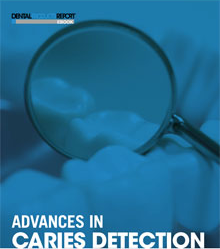



Free E-Book: How to navigate advances in caries detection
In this free e-book, learn what the advances in caries detection mean to the conservative practitioner and what they can do for your dental practice. Click here to get the e-book.



Hygiene is hard on the body- how do you cope?
How do you deal with the aches and pains that come with being a dental hygienist?
I only work part time, 22 hours a week with the occasional additional four hours per week picked up here and there. I find that on the weeks that I work those additional four hours, I get more headaches from the knotted muscles in my back and neck. How do you all manage to work and not kill your body? Do you do exercises? Get massages? I try very hard to keep my good posture while working but let’s face it, if you have to bend over to see something, you do what you need to do. I am beginning to feel that one of the benefits that employers provide should be a monthly stipend for massages! Wouldn’t that be great!
Great ergonomics to prevent musculoskeletal injuries is first and foremost. However, like you mentioned, that’s much easier said than done! To give your body a fighting chance, invest in loupes and good operator chair. Many hygienists find relief with a properly fitted and adjusted saddle stool.
Beyond that, I find that seeing a chiropractor regularly helps. Massages are great in combination with chiropractic care. Strengthening your core to help with posture can help a lot. Pilates, yoga, or anything to keep physically active can make a huge difference in how you feel. You don’t necessarily have to go to the gym to do this. You can get yoga or Pilates DVDs to do at home (be mindful of your technique), a balance ball to do exercises with, and a foam roller to work out the tension in your back. Don’t forget to stretch throughout your workday; in between patients, at lunch, whenever you can. Get that blood flowing! Stretching = blood flow = tissue repair.
Whatever you do, don’t ignore chronic pain. Pain is a weird thing; you can have pain in your shoulder and/or arm, yet it may actually be due to a neck/spine issue. The last thing you want to do is ignore something that may be a bulging/herniated disc, for example. If a doctor recommends an MRI or X-ray, do it. Finding the cause of the pain is important. Yes, you can take prescribed meds to deal with the symptoms, but that doesn’t get to the root of the actual problem causing the pain, nor does it fix it. Don’t hesitate to work with a doctor (chiropractor, physical therapist, surgeon) to find that root cause. It could be something as simple as you shrugging your shoulders up when you work, and working on techniques to relax could make a world of difference.
Lastly, work with your whoever does the scheduling in your office to keep your schedule balanced. Being on the same page about not having three non-surgical periodontal therapy/SRP patients in a row or having multiple patients on the same day that due to their medical condition, cannot lay supine, gives your body a break.
To be able to take care of your patients, you must take care of yourself. So take the time to keep yourself healthy. This helps with the everyday aches and pains and also prolongs your career.
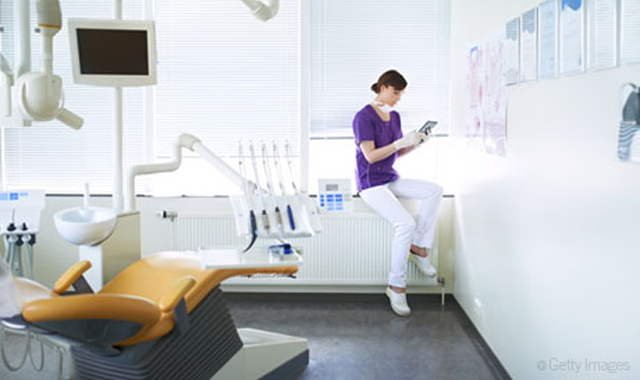


First year in clinic
I’m a first-year student and just started working on family and friends in clinic. I’m already feeling so overwhelmed and that I will never be good at this! Everything from clock positions, to choosing the correct working end of an instrument, is a struggle. Is it normal to feel this overwhelmed starting out?
Yes, it is very normal to feel overwhelmed at the beginning! It absolutely is a lot to take in a first, but the more patients you see, the easier things will become! I felt exactly like you when I began seeing patients. I was terrified I would make a mistake. But what I learned is that when I did make a mistake, and my instructors corrected me, it actually helped me remember even more.
That’s another thing – don’t get frustrated when your instructors correct you. If you learn how to take constructive criticism you will excel. That was tough for me to learn, but once I did everything changed! Also, don’t be afraid to ask questions of your instructors, they are a valuable resource! Pretty soon you will be surprised at how fast chair positions, using the correct working end of an instrument, and other things like that, will become like second nature. Think back to when you learned to drive a car or when you were learning distal, mesial, facial/buccal, and lingual and that was overwhelming, but now it’s much easier – same thing here!
Also worth mentioning is that it would seem that working on family and friends would be more comforting, however I found the opposite to be true for myself. I was much more embarrassed, self-conscious, and hesitant. Food for thought! With that said, you totally got this, have patience with yourself! Happy scaling (with the correct working end)!



Other duties – check out and filing insurance in the operatory
Is it normal for hygienists to take payments or check your patients out before they leave your operatory, instead of them going up front? What about filing their insurance claims in the back too? My office has recently started this and I find it frustrating to make time for this among my other duties.
I interviewed at an office once that wanted me to do this. I was not interested in the position because it blurs the line of the back office being practitioners as opposed to office staff. Both are important, don’t get me wrong, but have two very different job descriptions and duties. It was also an infection control issue because this particular office had a machine that patients signed with and this was just sitting openly in operatories. Not to mention when another team member needed it, they had to search for which operatory it was in. This not only wasted time, but made the office look unorganized to the patients.
During my working interview, both assistants and the other hygienist complained about having to do “front office duties.” It was very obvious it was a point of resentment and it was leading to a non-team focused, us against them, environment. And isn’t this what the front office is being paid to do? Helping out with front office duties when you can is one thing, but adding a second job description to your already large list of duties of directly treating patients isn’t a way to run an efficient office. You are a hygienist, not a billing specialist.
Most of all, like you mentioned, it takes up valuable time you have to treat your patient, hence you are rushed, and patient care standards lower. Here’s an analogy: when you go to your primary care physician or have surgery does the doctor, medical assistant, or nurse take your payment or file your insurance? Of course not, the front office does; as they are the experts in that area and nurses, doctors, and medical assistants are experts in treating patients. While there are some offices that do this, I don’t personally see this as a great way to run an office!
